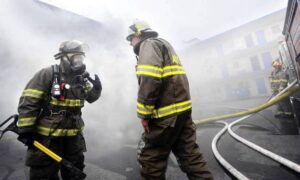
Hotels are places of comfort and relaxation for travelers, providing a home away from home. However, ensuring the safety of guests and employees should always remain a top priority. Among the various risks that hotels face, fires pose a significant threat to both lives and property. In this article, we will explore effective strategies and best practices that hotels can implement to protect against fires, creating a secure environment for everyone.
Conducting Fire Risk Assessments
Before implementing any preventive measures, hotels should conduct comprehensive fire risk assessments. This process involves identifying potential hazards, evaluating their severity, and developing strategies to mitigate the risks. A professional fire risk assessment consultant can assist hotels in identifying vulnerable areas, such as kitchens, laundry facilities, electrical rooms, and storage areas.
Installing Fire Detection and Alarm Systems
An efficient fire detection and alarm system is critical for prompt response to any fire incident. Hotels should install high-quality smoke detectors, heat detectors, and fire alarms throughout the premises. These systems should be regularly inspected and tested to ensure they are functioning correctly. Additionally, interconnected alarms that activate simultaneously throughout the building can provide early warning and enable a swift evacuation.
Implementing Robust Fire Suppression Systems
A Texas Fire Extinguisher Inspections business owner told me fire suppression systems play a vital role in controlling and extinguishing fires, minimizing their potential damage. Hotels should consider installing automatic sprinkler systems, which can detect and suppress fires at their early stages, preventing them from spreading rapidly. Fire extinguishers should also be strategically placed in accessible locations, and hotel staff should receive proper training on their use.
Establishing Adequate Escape Routes and Emergency Exits
Hotels must have clear and well-marked escape routes and emergency exits to ensure safe evacuation in the event of a fire. Escape routes should be easily accessible, free from obstructions, and well-illuminated. Regular drills should be conducted to familiarize staff and guests with evacuation procedures. Hotels should also provide clear evacuation instructions in guest rooms and common areas.
Enhancing Electrical Safety Measures
Electrical faults are one of the leading causes of hotel fires. To minimize this risk, hotels should regularly inspect and maintain their electrical systems, including wiring, outlets, and appliances. Implementing ground fault circuit interrupters (GFCIs) in areas with water sources, such as bathrooms and kitchens, can help prevent electrical shocks and fires. Staff should also be trained to identify potential electrical hazards and report them promptly.
Proper Storage and Handling of Combustible Materials
Hotels typically store various flammable substances, such as cleaning agents, chemicals, and compressed gases. These materials should be stored in designated areas away from ignition sources and heat. Proper handling, storage, and labeling are crucial to minimize the risk of accidental fires. Staff should receive training on safe storage practices and the proper use of hazardous materials.
Training and Education for Staff and Guests
Well-trained staff members are essential for effective fire prevention and response. Hotel employees should undergo regular fire safety training, including fire extinguisher usage, evacuation procedures, and first aid. Guests should also be provided with fire safety information, including the location of emergency exits and the importance of immediate evacuation. Increasing awareness through educational materials and signage can significantly improve overall fire safety.
Regular Maintenance and Inspections
Regular maintenance and inspections are key to ensuring the continued effectiveness of fire safety measures. Hotels should establish a routine maintenance schedule for all fire safety equipment, including alarms, sprinkler systems, and fire extinguishers. Additionally, periodic inspections of electrical systems, heating, ventilation, and air conditioning (HVAC) systems, and kitchen equipment should be conducted to identify and address potential fire hazards promptly.
Conclusion
Protecting against fire hazards is crucial for hotels to safeguard the lives of guests and staff and preserve their property. By conducting thorough fire risk assessments, installing effective fire detection and suppression systems, establishing clear escape routes, enhancing electrical safety measures, and providing comprehensive training, hotels can significantly reduce the risk of fires. Regular maintenance, inspections, and continuous education are vital for maintaining a safe environment. By prioritizing fire safety, hotels can ensure a secure and comfortable experience for their guests while fostering peace of mind for all.

